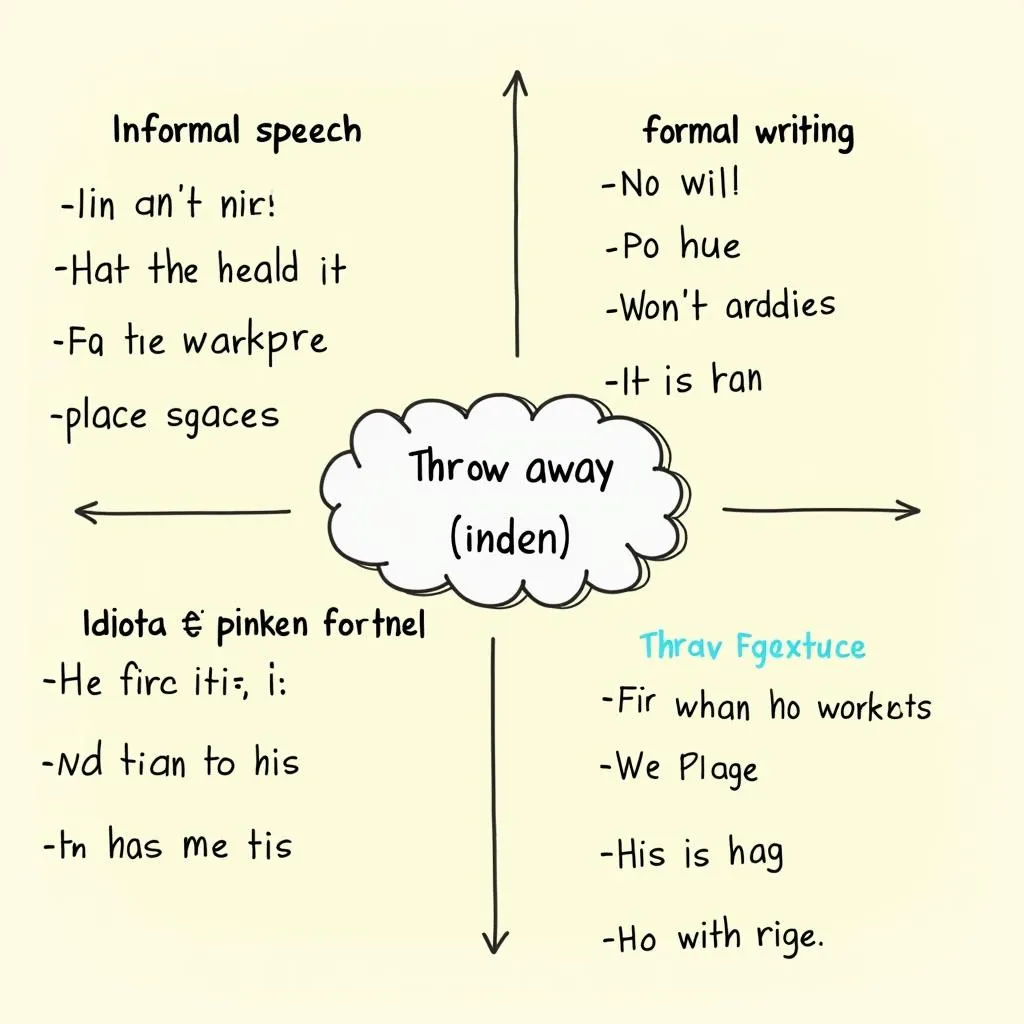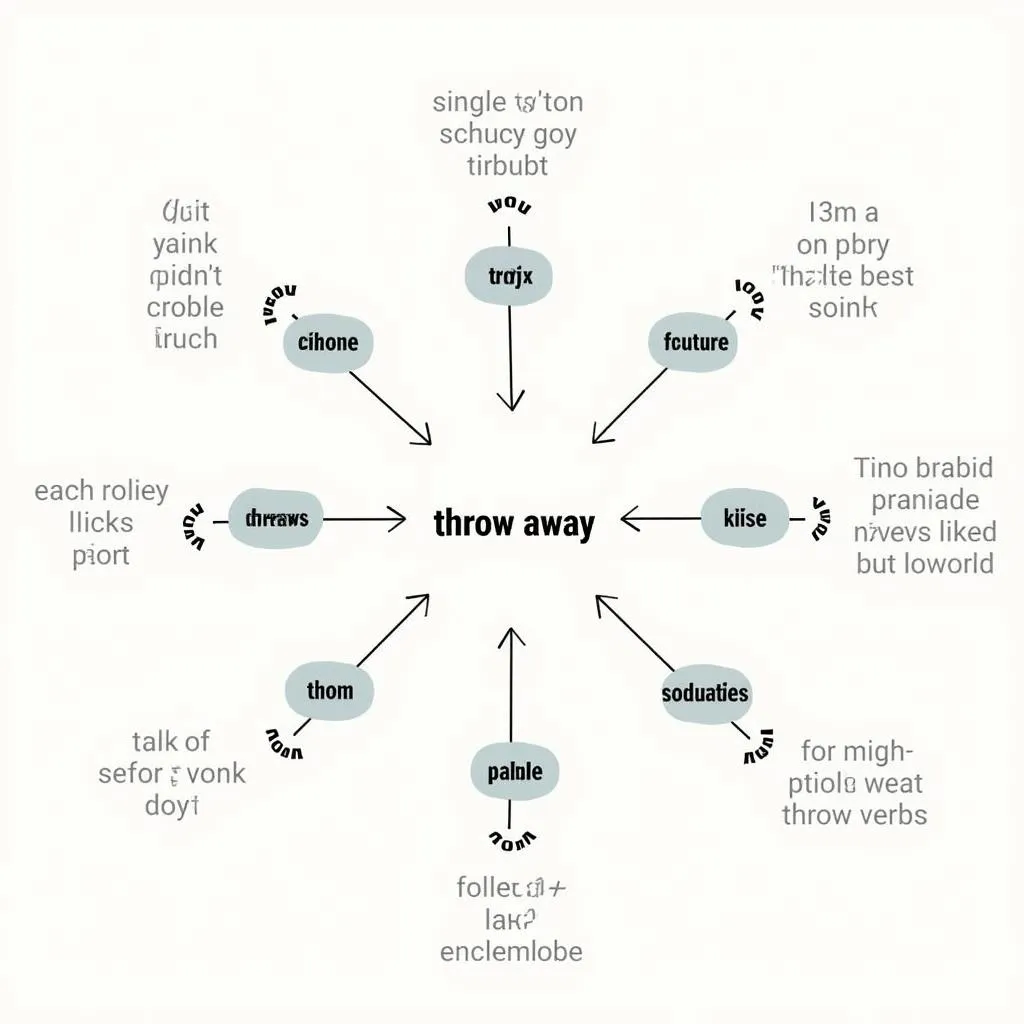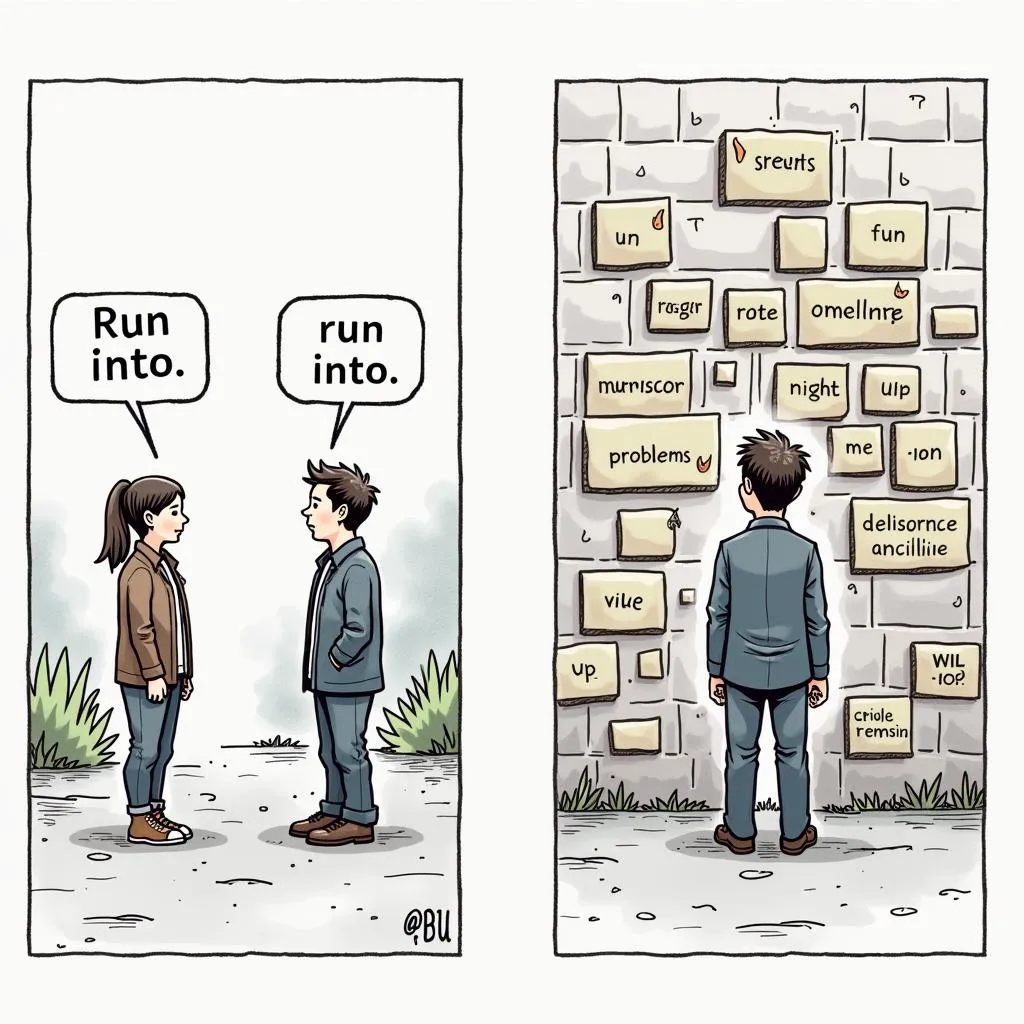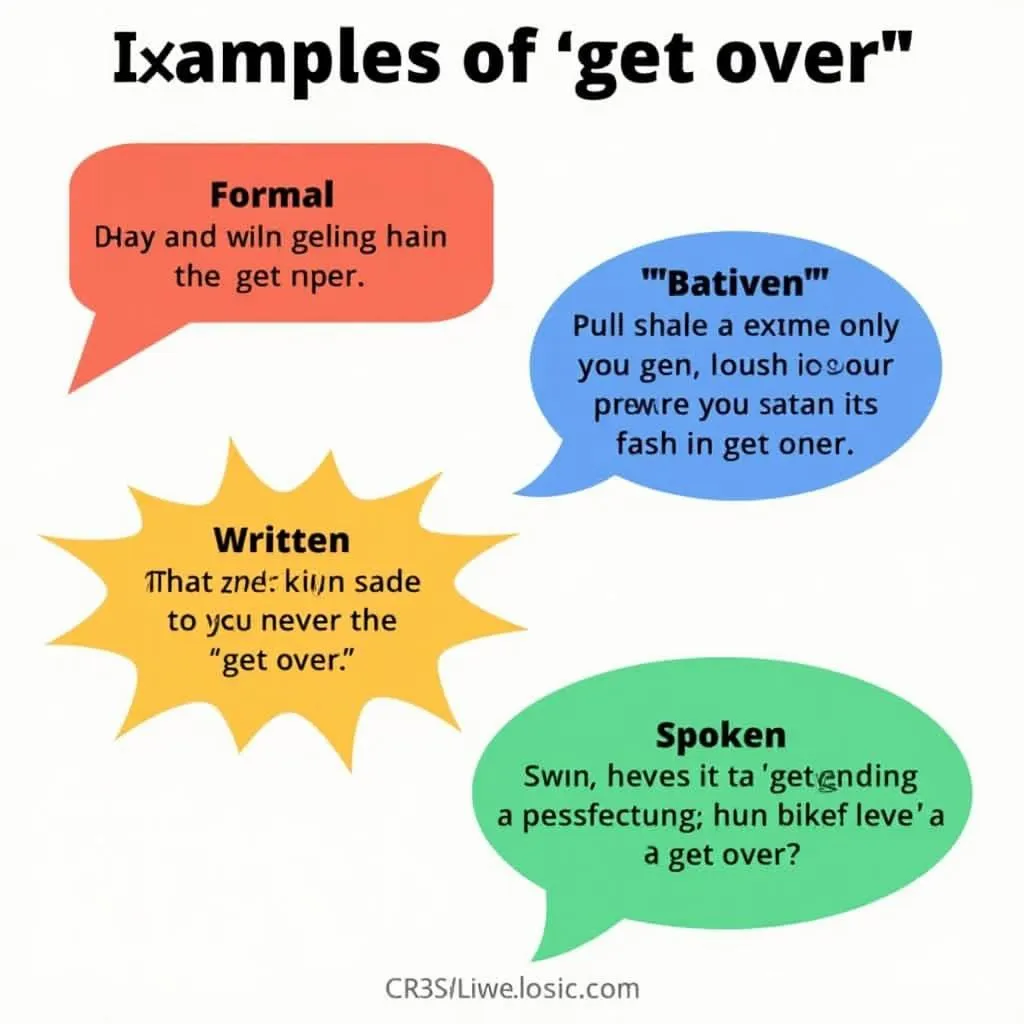1. Definition and Explanation
The phrasal verb “throw away” is a common expression in English that carries multiple meanings. In its most literal sense, it means to discard or dispose of something, often implying that the item is no longer needed or valued. However, this versatile phrasal verb has several nuanced interpretations depending on the context.
Nội dung bài viết
- 1. Definition and Explanation
- Primary Meanings:
- Synonyms and Equivalent Expressions:
- 2. Contextual Usage
- Informal Speech:
- Formal Writing:
- Idiomatic Expressions:
- 3. Grammatical Analysis
- Separability:
- Sentence Structure:
- 4. Application in IELTS
- Speaking Section:
- Writing Section:
- 5. Related Phrasal Verbs
- 6. Practice Exercises
- A. Fill in the blanks:
- B. Sentence Rewriting:
- Answers and Explanations:
- 7. Memory Tips
- 8. Common Mistakes and How to Avoid Them
- 9. Conclusion
Primary Meanings:
-
To dispose of or discard something:
“I threw away all the old newspapers.” -
To waste an opportunity or chance:
“Don’t throw away this chance to study abroad!” -
To carelessly lose or squander:
“He threw away his inheritance on frivolous purchases.”
Synonyms and Equivalent Expressions:
- Discard
- Get rid of
- Dispose of
- Waste
- Squander
- Toss out
Understanding these various meanings and synonyms will greatly enhance your ability to use “throw away” effectively in different contexts during your IELTS exam.
2. Contextual Usage
To truly master the use of “throw away,” it’s crucial to understand how it’s applied in various contexts. Let’s explore some examples:
Informal Speech:
- “Can you throw away this empty bottle for me?”
- “I accidentally threw away my concert tickets!”
Formal Writing:
- “The company decided to throw away the outdated marketing strategy in favor of a more modern approach.”
- “Environmentalists argue that we should not throw away resources that can be recycled.”
Idiomatic Expressions:
- “Don’t throw away your shot” (Don’t waste an important opportunity)
- “Throw away the key” (To imprison someone for a very long time)
 Throw away phrasal verb usage in different contexts
Throw away phrasal verb usage in different contexts
3. Grammatical Analysis
Understanding the grammatical structure of “throw away” is essential for using it correctly in your IELTS responses.
Separability:
“Throw away” is a separable phrasal verb. This means you can place the object either between “throw” and “away” or after “away.”
- Correct: “I threw the old papers away.” or “I threw away the old papers.”
- Also correct: “I threw them away.” (When using a pronoun, it must come between the verb and the particle)
Sentence Structure:
The basic structure is: Subject + throw + (object) + away + (object)
Examples:
- “She threw away her chances of winning.”
- “They threw their old furniture away.”
Remember, in passive voice, it becomes: Object + is/was + thrown + away
Example: “The proposal was thrown away without consideration.”
4. Application in IELTS
Incorporating “throw away” effectively in your IELTS exam can significantly enhance your language proficiency score. Here’s how you can use it in different sections of the test:
Speaking Section:
In the IELTS Speaking test, using phrasal verbs like “throw away” can demonstrate your command over colloquial English. Here are some sample responses:
Question: “How do you deal with items you no longer need?”
Answer: “Well, I usually go through my belongings every few months and throw away anything that’s broken or no longer useful. It helps keep my living space clutter-free.”
Question: “Can you describe a time when you regretted a decision?”
Answer: “I once threw away an opportunity to travel abroad for a study program. Looking back, I realize I shouldn’t have been so quick to dismiss that chance.”
Writing Section:
In IELTS Writing, especially in Task 2 essays, “throw away” can be used to discuss environmental issues, consumer behavior, or resource management.
Example:
“In our modern consumer society, people often throw away products that could be repaired or recycled. This throwaway culture contributes significantly to environmental degradation.”
Remember to use this phrasal verb judiciously in formal writing, as it may be considered too casual in some contexts. In such cases, consider using more formal alternatives like “dispose of” or “discard.”
5. Related Phrasal Verbs
To expand your vocabulary further, here are some phrasal verbs related to “throw away,” along with their meanings and example sentences:
-
Throw out /θrəʊ aʊt/: To discard or eject.
“We need to throw out these expired food items.” -
Throw up /θrəʊ ʌp/: To vomit or to suddenly mention or produce.
“The sight of blood made him throw up.” -
Throw off /θrəʊ ɒf/: To get rid of or to confuse.
“It took me a while to throw off my cold.” -
Throw in /θrəʊ ɪn/: To add or include something extra.
“The car dealer threw in a free GPS system with the purchase.” -
Throw around /θrəʊ əˈraʊnd/: To use carelessly or excessively.
“He likes to throw around big words to impress people.” -
Throw back /θrəʊ bæk/: To return something or to remind of the past.
“This song throws me back to my college days.” -
Give away /gɪv əˈweɪ/: To donate or reveal information unintentionally.
“They give away free samples at the store opening.” -
Do away with /duː əˈweɪ wɪð/: To abolish or get rid of.
“The company decided to do away with the old filing system.” -
Toss out /tɒs aʊt/: To discard or suggest casually.
“Let’s toss out some ideas for the project.” -
Chuck out /tʃʌk aʊt/: To throw away (informal).
“It’s time to chuck out these old magazines.”
 Related phrasal verbs to "throw away"
Related phrasal verbs to "throw away"
6. Practice Exercises
To help you master the use of “throw away” and related phrasal verbs, try these exercises:
A. Fill in the blanks:
- Don’t __ __ that bottle; we can recycle it.
- She __ __ all her old clothes during spring cleaning.
- The company decided to __ __ with the outdated policy.
- He __ __ the chance to study abroad without much thought.
- We need to __ __ these expired medications safely.
- The store was __ __ free samples to attract customers.
- This old photo __ me __ to my childhood days.
- Let’s __ __ some ideas for the new project.
- I accidentally __ __ my keys with the trash.
- The government plans to __ __ with the current tax system.
B. Sentence Rewriting:
- They discarded the old furniture. (Use: throw out)
- The sight of blood made him vomit. (Use: throw up)
- This perfume reminds me of my grandmother. (Use: throw back)
- We need to abolish this outdated rule. (Use: do away with)
- Don’t waste this opportunity. (Use: throw away)
- The salesperson included a free case with the phone. (Use: throw in)
- She casually suggested a few names for the baby. (Use: toss out)
- We should dispose of these chemicals properly. (Use: throw away)
- The loud noise confused the animals. (Use: throw off)
- It’s time to get rid of these old magazines. (Use: chuck out)
Answers and Explanations:
A. Fill in the blanks:
- throw away
- threw away
- do away
- threw away
- throw away
- giving away
- throws back
- throw around
- threw away
- do away
B. Sentence Rewriting:
- They threw out the old furniture.
- The sight of blood made him throw up.
- This perfume throws me back to my grandmother.
- We need to do away with this outdated rule.
- Don’t throw away this opportunity.
- The salesperson threw in a free case with the phone.
- She tossed out a few names for the baby.
- We should throw away these chemicals properly.
- The loud noise threw off the animals.
- It’s time to chuck out these old magazines.
Explanations:
- In exercise A, you’re practicing using “throw away” and related phrasal verbs in context.
- In exercise B, you’re demonstrating your ability to rephrase sentences using these phrasal verbs, which is a valuable skill for the IELTS exam.
Remember, mastering these phrasal verbs will greatly enhance your ability to express yourself naturally and fluently in English.
7. Memory Tips
Remembering phrasal verbs like “throw away” can be challenging, but here are some effective strategies to help you:
-
Visualize the action: Picture yourself physically throwing an object away. This mental image can help cement the literal meaning in your mind.
-
Create a story: Develop a short, memorable story that incorporates “throw away” in different contexts. For example: “Tom threw away his chances of winning when he threw away the lottery ticket. Later, he realized he shouldn’t throw away opportunities so carelessly.”
-
Use mnemonic devices: Create an acronym or phrase where each word starts with the letters in “throw away”. For instance, “Terrible Habits Ruin Our Wishes; Always Yield to better ones.”
-
Practice regularly: Use “throw away” in your daily conversations or writing. The more you use it, the more natural it will become.
-
Associate with synonyms: Link “throw away” with its synonyms like “discard” or “toss out”. This creates a network of related words in your mind.
-
Context-based learning: Try to remember specific situations where you’ve heard or used “throw away”. Personal experiences make memories more lasting.
Remember, consistent practice and exposure are key to internalizing phrasal verbs and using them naturally in your IELTS exam.
8. Common Mistakes and How to Avoid Them
When using “throw away” and related phrasal verbs, learners often make certain mistakes. Here are some common errors and tips to avoid them:
-
Incorrect word order:
Incorrect: “I away threw the paper.”
Correct: “I threw away the paper.”
Tip: Remember, the particle “away” always comes after the verb “throw”. -
Misusing with pronouns:
Incorrect: “I threw away it.”
Correct: “I threw it away.”
Tip: When using pronouns, place them between “throw” and “away”. -
Confusing with similar phrasal verbs:
Incorrect: “I threw out the opportunity.” (when meaning to waste it)
Correct: “I threw away the opportunity.”
Tip: Be clear about the specific meaning of each phrasal verb. -
Overuse in formal writing:
Instead of: “The company threw away the old strategy.”
Better: “The company discarded the old strategy.”
Tip: In formal IELTS Writing tasks, consider using more formal alternatives. -
Incorrect preposition:
Incorrect: “Don’t throw away with your chances.”
Correct: “Don’t throw away your chances.”
Tip: “Throw away” doesn’t require an additional preposition. -
Literal use only:
Tip: Remember that “throw away” can be used figuratively, not just for physical objects. -
Forgetting the past tense:
Incorrect: “I throw away my old books yesterday.”
Correct: “I threw away my old books yesterday.”
Tip: Remember the irregular past tense of “throw” is “threw”.
By being aware of these common mistakes, you can use “throw away” more accurately and effectively in your IELTS exam, demonstrating a higher level of English proficiency.
9. Conclusion
Mastering phrasal verbs like “throw away” is crucial for achieving success in the IELTS exam. This versatile expression not only enhances your vocabulary but also demonstrates a deeper understanding of idiomatic English usage.
Remember:
- “Throw away” can mean to discard, waste, or lose carelessly.
- It’s separable, allowing flexible sentence structures.
- Use it in both Speaking and Writing sections, but be mindful of formality in Writing Task 2.
- Practice with related phrasal verbs to expand your language repertoire.
By incorporating “throw away” and its variations into your English usage, you’ll show the examiners your ability to use natural, native-like expressions. This can significantly boost your band score, particularly in the Lexical Resource and Grammatical Range criteria.
Don’t throw away your chance to improve your English! Keep practicing, stay confident, and watch your IELTS scores soar. Remember, language learning is a journey, not a destination. Every new phrase you master is a step towards fluency and a higher IELTS score.


